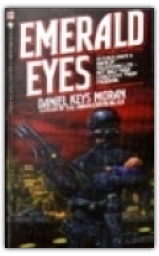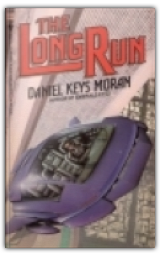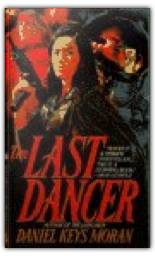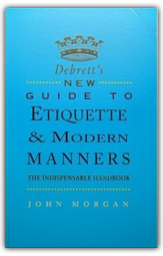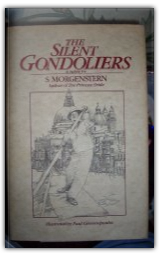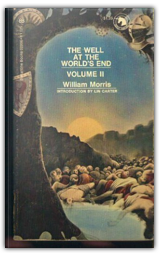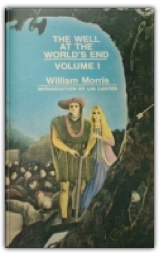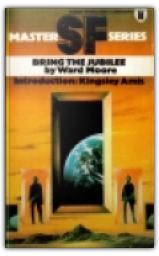 Bring the Jubilee
Ward Moore
Bring the Jubilee
Ward Moore
Ward Moore wrote few SF novels, but Bring the Jubilee (1953) instantly became a classic of alternate history. It's the definitive story of a timeline where the South won the American Civil War—known in this different 20th century as the War of Southern Independence.
Crippled by war reparations that must be paid in gold, the 26 Northern states are seedy and run-down. Slavery, disguised as corporate indenture, is commonplace for whites as well as blacks. There's no worse insult than "Dirty Abolitionist". Life goes on as always, and 1938 New York has a certain provincial charm, swarming with bicycles and horse-drawn carts, while dirigibles float over skyscrapers of 14 or even 15 storeys, and telegraph wires are ...
a reminder that no urban family with pretensions to gentility would be without the clacking instrument in the parlor, that every child learned the Morse code before he could read.
Newly arrived from the sticks, Hodge Backmaker picks up an education as apprentice to a cynical printer who supports the underground "Grand Army" (the North hopes to rise again). Eventually our hero, a self-taught historian, joins an eccentric community of scholars and has a turbulent affair with a brilliant female physicist working on the mysteries of Time.
She offers Hodge his big research opportunity: to visit 1863 and study the Battle of Gettysburg from a safe vantage point. Fortunately or tragically, the place he chooses is rather crucial ...
Moore writes lovingly and movingly of America as it was and might have been. This is number 42 in Gollancz's high-quality SF Masterworks reissue series. —David Langford
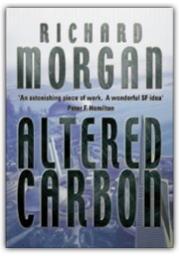 Altered Carbon
Richard Morgan
Altered Carbon
Richard Morgan
Richard Morgan's debut SF thriller Altered Carbon isn't for the faint-hearted. Its noir private-eye investigation races through extreme violence, hideously imaginative torture and many high-tech firefights.
In 2411, death is not forever. Afterward, they can read your personality from an implanted "cortical stack" and upload you into a new body—at a price. Hero Kovacs has worn many bodies on different worlds as a former member of the UN Envoy Corps, programmed killers to a man. Now the incredibly rich Bancroft brings him to Earth to investigate a killing... of Bancroft himself, restored from his digital backup and rejecting the police theory of suicide.
Half the vice-lords of 25th-century San Francisco are soon chasing Kovacs with futuristic surveillance, drugs and weaponry. Virtual-reality interrogation means they can torture you to death, and then start again. There's a bleak slave trade in rented or confiscated bodies—and Kovacs finds his current borrowed face is all too well known to both police and underworld.
Ultraviolent set-pieces follow, sprinkled with philosophical asides such as this reflection on a stungun: "It was the single forgiving phrase in the syntax of weaponry I had strapped around me. The rest were unequivocal sentences of death."
There are some James-Bondian implausibilities, such as Kovacs's final confrontation with the villain he's sworn to kill: rather than shooting and leaving fast, he discusses the plot for 10 pages until... but that would be telling. This is high-tension SF action, hard to put down—though squeamish readers may shut their eyes rather frequently. —David Langford
|
 Bring the Jubilee
Ward Moore
Bring the Jubilee
Ward Moore
 Altered Carbon
Richard Morgan
Altered Carbon
Richard Morgan
 Made with Delicious Library
Made with Delicious Library




